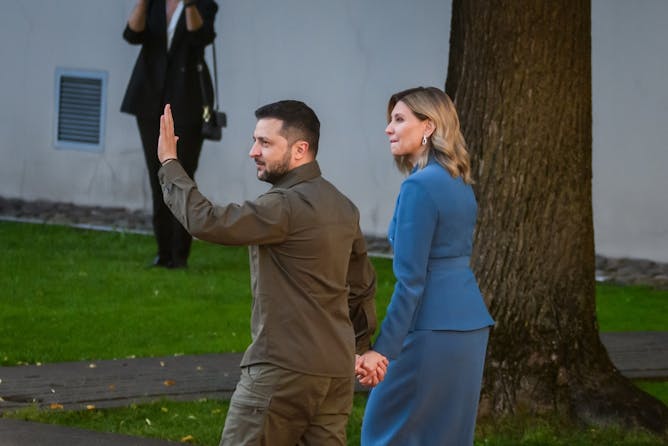|
We’ve probably all received phone calls from scammers, who push for sensitive details they can use to siphon money from us. Many of us are now alert to these grifts. Now imagine the voice at the other end was not a stranger, but your partner, or your child. If they were asking for money in an emergency, would you be confident enough to hang up on them?
Advances in artificial intelligence mean that “deepfake voice scams” are already a problem and could become much more serious. This is where recordings taken from social media are used to “clone” someone’s voice. Criminals can then say anything they want and make it sound like the person in question. An expert explains how the scams work and whether there’s anything we can do to avoid being caught out.
Meanwhile, Nato leaders have been meeting in Lithuania to discuss Ukraine’s future within the alliance. Can studying Nato’s history help steer decisions as members grapple with one of the alliance’s biggest challenges since forming in 1949?
|

Oliver Buckley, University of East Anglia
AI can generate a synthetic voice that sounds just like a loved one.
|

Jan Ruzicka, Aberystwyth University; Gerald Hughes, Aberystwyth University
An aggressive Soviet strategy in Europe prompted the formation of Nato.
|
|
|
-
Alejandro Cearreta, Universidad del País Vasco / Euskal Herriko Unibertsitatea
Crawford Lake in Ontario contains the record that best identifies the beginning of the Anthropocene, the geologic epoch characterized by the global impact of human activity.
-
David Armstrong McKay, Stockholm University
The Pacific Ocean is entering the hot phase of its temperature cycle, an event that will turbo-charge global warming.
-
Ed Turner, Aston University
Far-right party Alternative for Germany is leading opinion polls in parts of the country and could pose a major threat in regional contests that lie ahead.
-
Nic Rawlence, University of Otago; Felix Georg Marx, Te Papa Tongarewa; Ludovic Dutoit, University of Otago
Our new genomic research finally solves a 150 years of scientific mystery about the unusual and ancient pygmy right whale.
-
Frances Williams, King's College London
A recent study found that among people who were overweight or obese, taking metformin during a COVID infection reduced the risk of developing long COVID by 40%.
-
Justin Pearce, Stellenbosch University
The sites provide a rare tangible record of the international solidarity that existed during the Cold War.
-
Anna Andrianova, Université Laval
Mindfulness, through focused attention meditation, can help overcome repetitive negative thinking, thus improving mental and physical health.
|
|

Juan Pérez Fernández, Universidade de Vigo; Roberto de la Torre Martínez, Karolinska Institutet
Are holidays really necessary, and why do we need them? And, above all, what are the benefits of a few days off? This is what science says.
|